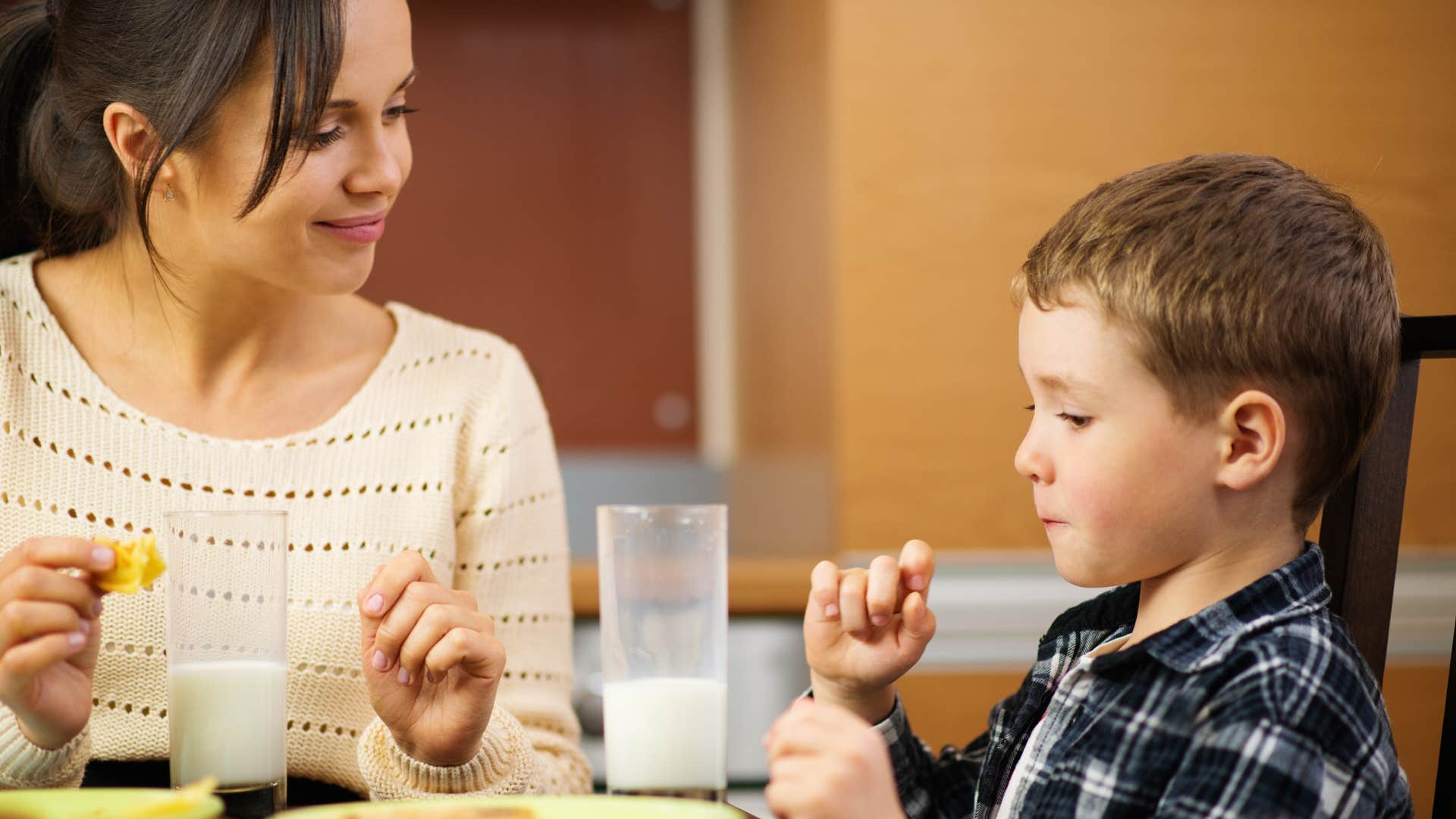11 Things You Quickly Learn When You're Dating A Youngest Child
If you're thinking of dating the baby of the family, good luck.
 Krakenimages.com | Shutterstock
Krakenimages.com | Shutterstock As the youngest child and the only girl in my family, my life alternated from being looked over to being pretty much followed by my mom because she's convinced I'm incapable of doing anything on my own. That said, when my boyfriend said recently that I'm "very much the little sister," he was probably referring to the following 11 things you quickly learn when you're dating a youngest child.
He surely couldn't mean I'm bratty, because I know where he sleeps. But, if you're embarking on a relationship with the youngest child, there are many things to be aware of. Because even though youngest children may be in their siblings' shadow, there are traits they develop that make them resilient.
Here are 11 things you quickly learn when you're dating a youngest child
1. They might act out if they're not getting enough attention
 Photoroyalty | Shutterstock
Photoroyalty | Shutterstock
Because our firstborn siblings can walk on water, we feel like we may not always measure up to them. So instead of being, say, an aeronautical engineer and pilot, we'll do stand-up comedy and gossip about mom to strangers.
If you're dating us and we feel neglected, we may pick a fight just to get you to talk to us for a while. Despite youngest children picking fights as a way to get attention, as child psychologist Rochelle L. Harris pointed out, we know it's not the healthiest (nor the most effective) solution. Still, it doesn't mean we don't try it occasionally.
2. They're independent and guarded
 MAYA LAB | Shutterstock
MAYA LAB | Shutterstock
Because we didn't get a ton of attention as kids, we're accustomed to going at it alone. And we're usually perfectly ready to go it alone again at the drop of a hat.
Sure, we may like attention from others (we may love it, in fact), but we're guarded enough to protect ourselves and pick up the pieces pretty quickly if you're silly enough to leave us. (But please don't leave us. Please?)
3. They're used to getting away with everything
 PeopleImages.com - Yuri A | Shutterstock
PeopleImages.com - Yuri A | Shutterstock
As the youngest child, our parents gave a lot more attention to our older siblings, which has been shown to result in oldest children having certain cognitive development advantages over their siblings.
The bright side of that for the youngest children? While our parents don't really notice our accomplishments as much, they're also less likely to notice that we haven't brought home a math test all semester or that we got a tattoo two years ago. That said, if we do things that aren't necessarily nice to others, we're not used to getting called out on it.
4. They want to be photographed for once, even if they won't admit it
 Maria Markevich | Shutterstock
Maria Markevich | Shutterstock
It's true that after the firstborn child, parents tend to take less photos of their younger children. One survey from London Mums found that two-thirds of UK moms forget to take photos of their younger kids, with 70% admitting they have fewer than 10 photos of that child on their own.
As the youngest child our parents got camera fatigued by the time we came along, so we may ask others to stop for a selfie more often. Be flattered and get our good side.
5. They're used to getting what they want
 GaudiLab | Shutterstock
GaudiLab | Shutterstock
Not only do we get away with metaphorical murder, but we will do whatever it takes to get it. That includes manipulating not only our family, but our partner as well.
But even if it's not a great thing to do, we're used to it. And our partner will deal with it.
6. They're used to sitting at the kid's table
 Nejron Photo | Shutterstock
Nejron Photo | Shutterstock
While we were banished to the kid's table as children, we still suffer the same fate as adults. But it's okay, because we feel more at home there. At least toddlers think we're important and capable, even if our parents don't.
7. They're observant and great listeners
 DimaBerlin | Shutterstock
DimaBerlin | Shutterstock
With so many older siblings, we're incredibly observant and listen well, which is something you quickly learn when you're dating a youngest child. In fact, professor of applied psychology Laurie Kramer revealed that youngest siblings are "explorers and good observers."
It's because we probably didn't get to actually converse in a real way until we were packing for college. So, we learn from other people's mistakes and are in tune with our surroundings, including the people within them.
8. They're hilarious
 fast-stock | Shutterstock
fast-stock | Shutterstock
We need to get attention somehow, and we'll do it by making jokes. These jokes may not always be appropriate, and they won't always come at appropriate times, but they will be hysterically funny.
And it's not just speculation, it's pretty much true because, according to a YouGov study, younger siblings are more likely to say they're more funny, relaxed, and easygoing than their older siblings. So, there.
9. They're terrified of not being taken seriously
 Big Shot Theory | Shutterstock
Big Shot Theory | Shutterstock
Just because people perceive the youngest sibling to be free of responsibilities, fun-loving, and a bit needy, we take on way more than people give us credit for. And we're actually more likely to be successful.
So, people need to take us seriously because, when they don't, we will rebel. And others won't like us when we're angry.
10. They don't mind if others call them the wrong name
 fizkes | Shutterstock
fizkes | Shutterstock
Listen, I have two older brothers and my own mother still calls me Jennifer regularly. We're numb to it by this point and have accepted it as a normal part of being the youngest sibling.
But when we're called the wrong name by a partner, know that, as one of the things you quickly learn when you're dating a youngest child, there will be an argument.
11. They're adorable
 stockfour | Shutterstock
stockfour | Shutterstock
We can get away with plenty of things, and it's really because we're adorable. People want to pinch our cheeks so much that it's hard for people to stay mad at us when we do things like forget to call, nag incessantly, or even stab them in the neck.
Jessica Sager is a writer and comic based in NYC. Her work has appeared in TIME, Page Six, New York Post, Cosmopolitan, People Magazine, and Good Housekeeping, among many others.

